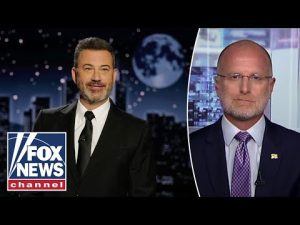The recent incident in Dearborn, Michigan, is a telling example of how political correctness and selective outrage have taken over rational discourse. The controversy centers around a street sign honoring a pro-Palestine supporter who happens to have connections with groups like Hamas and Hezbollah. When a Christian minister dared to voice his concern over this peculiar choice of heroes, he was met with a barrage of hostility from the city’s mayor. According to the mayor, this concerned citizen should either leave town or simply avoid the street in question. As if closing one’s eyes while driving is sound advice, right?
It’s a bizarre turn of events where someone pointing out the troubling words of a public figure—glorifying violence and martyrdom—is labeled an Islamophobe, a bigot, and worse. The mayor’s response was less about addressing genuine concerns and more about dismissing conservative views. This encounter underscores a growing pattern: disagree with liberal ideals, and you become persona non grata. Can you imagine a conservative mayor telling a Muslim resident they’re not welcome? We’d never hear the end of it.
Yet, here we find a mayor seemingly rooting for intolerance while ironically accusing others of it. Let’s not forget the minister, who remained steadfast and courted the mayor’s vitriol with grace. In contrast, the mayor, brimming with self-righteousness, declared that he’d celebrate if the minister left town. It’s a parade of absurdity, centered on the idea that questioning public decisions equals hate. This is not leadership, it’s blatant partisanship.
The issue isn’t just about a sign; it’s about what this insistence on selective outrage says about our society. Are we so enraptured with political narratives and diversity at any cost, that we ignore glaring contradictions? Celebrating diversity should include listening to dissenting voices—not silencing them. If anything, naming a street after someone with such incendiary views should tug at the conscience, prompting healthy debate and introspection.
At the heart, this debacle isn’t merely about who feels offended today, but about the principles being eroded in the name of tolerance. Free speech, a cornerstone of American values, shouldn’t be wielded selectively. The real question is, how far are we willing to let identity politics and emotional outrage degrade our ability to have meaningful discussions? The way forward is through real dialogue, not dismissals and eye-closing suggestions. After all, ignoring problems has never solved them—just ask anyone who’s accidentally driven into a pole.







